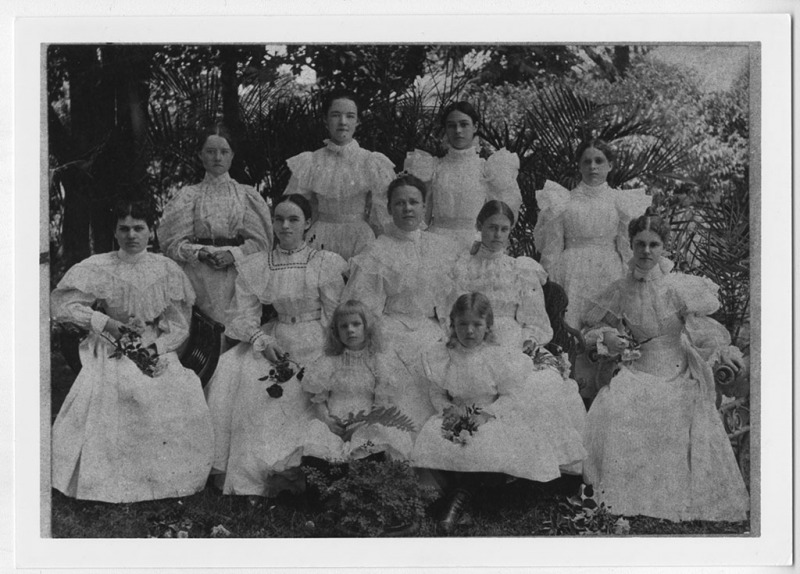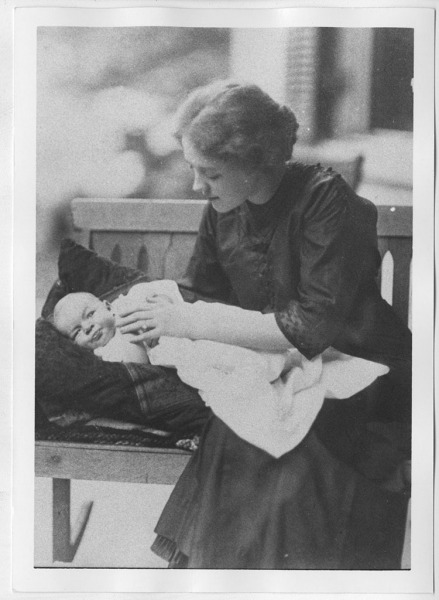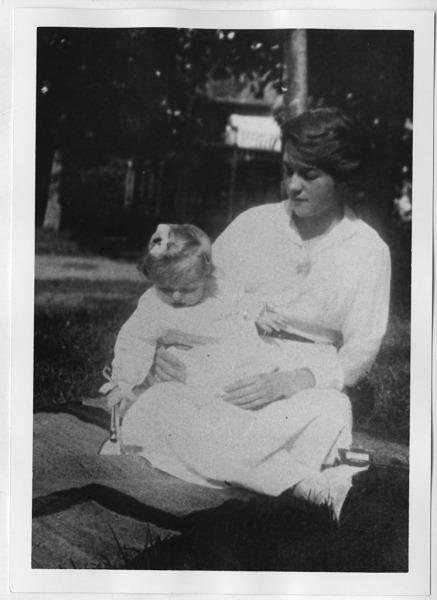Mary Fletcher Drennan was born Mary Fletcher February 7, 1890, in Little Rock, Arkansas, to John Gould Fletcher and Adolphine Krause Fletcher. She was the youngest child in the Fletcher family, preceded by her sister Adolphine Fletcher Terry in 1882, and her brother, famous poet John Gould Fletcher, Jr., in 1886. While both Mary and Adolphine defined their lives as activists for many causes, Mary’s primary role was in the Arkansas women’s suffrage movement.
Mary attended Vassar College in Poughkeepsie, New York, where she was influenced by the social activism that had taken hold on the East Coast. By 1910 Mary had returned to Little Rock, but never completed her coursework at Vassar. Mary was able to use her position and East Coast education to acquire positions of influence within suffrage circles. The Political Equality League (PEL) was established in 1911, and Mary was elected their first president. Initially the PEL had 75 members. The PEL initially formed to help support a constitutional amendment to extend suffrage to women in 1911. The amendment was not approved, so the PEL continued their work.
Between 1911 and 1912 Mary traveled internationally with Nell Dooley to assess international suffrage movements. Mary led the charge for peaceful suffrage activism in Arkansas as a result of what she witnessed in Europe. She not only felt that militant suffrage wasn’t necessary in the United States, but was quoted in the Arkansas Gazette in March 1912 as believing that “in America rights have always been won by peaceful methods, the reason being that the existence of the country is based on the government by the people, and all changes are made after careful thought by the desire of the people—sometimes slowly, but right always wins.” Mary also felt that women deserved a voice in the democracy that governed them.
Mary remained active in the PEL throughout the 1910s, and in January 1914 married Leonard H. Drennan in New Orleans. After her marriage, Mary remained active in the PEL and other civic organizations but took a step back from her leadership positions. Though she was no longer president of the PEL, she did appear at the Hot Springs Fair in November 1914 to rally with other PEL members for the cause of suffrage, and in 1915 the PEL elected Mary as a delegate to the Southern States Conference for Woman’s Suffrage.
Following her election in 1915, Mary is no longer cited as having an active role in the suffrage movement. In 1919, two years after primary voting had been extended to women in Arkansas, and shortly before Arkansas ratified the 19th Amendment, Mary gave birth to a son, Leonard Drennan, Jr. After her son was born, Mary and Leonard moved to Washington, D.C., for several years.
The family later settled in Maryland, where Leonard bought Verdant Valley Farm. In 1921, Mary gave birth to her second child, a daughter, Frances Drennan. Mary remained on the farm for the rest of her life. After the Drennan’s legally separated, Mary continued to own and operate Verdant Valley Farm. On May 31, 1982, at the age of 92, Mary Fletcher Drennan died in Monkton, Maryland. She is buried in Saint James of My Lady's Manor Cemetery with her son and daughter-in-law.
Rollberg, Jeanne Norton. "Political Equality League." Encyclopedia of Arkansas History and Culture. Updated 09/08/2015.
Danielle Butler is a new professional serving as a project archivist for the UA Little Rock Center for Arkansas History and Culture, as well as the Arkansas State Archives. She completed her MA in Public History in 2016 with a master's thesis project on the intersection of gender and home life in the development of the Arkansas kitchen. Danielle's research and writing interests include the built environment and gender studies.



